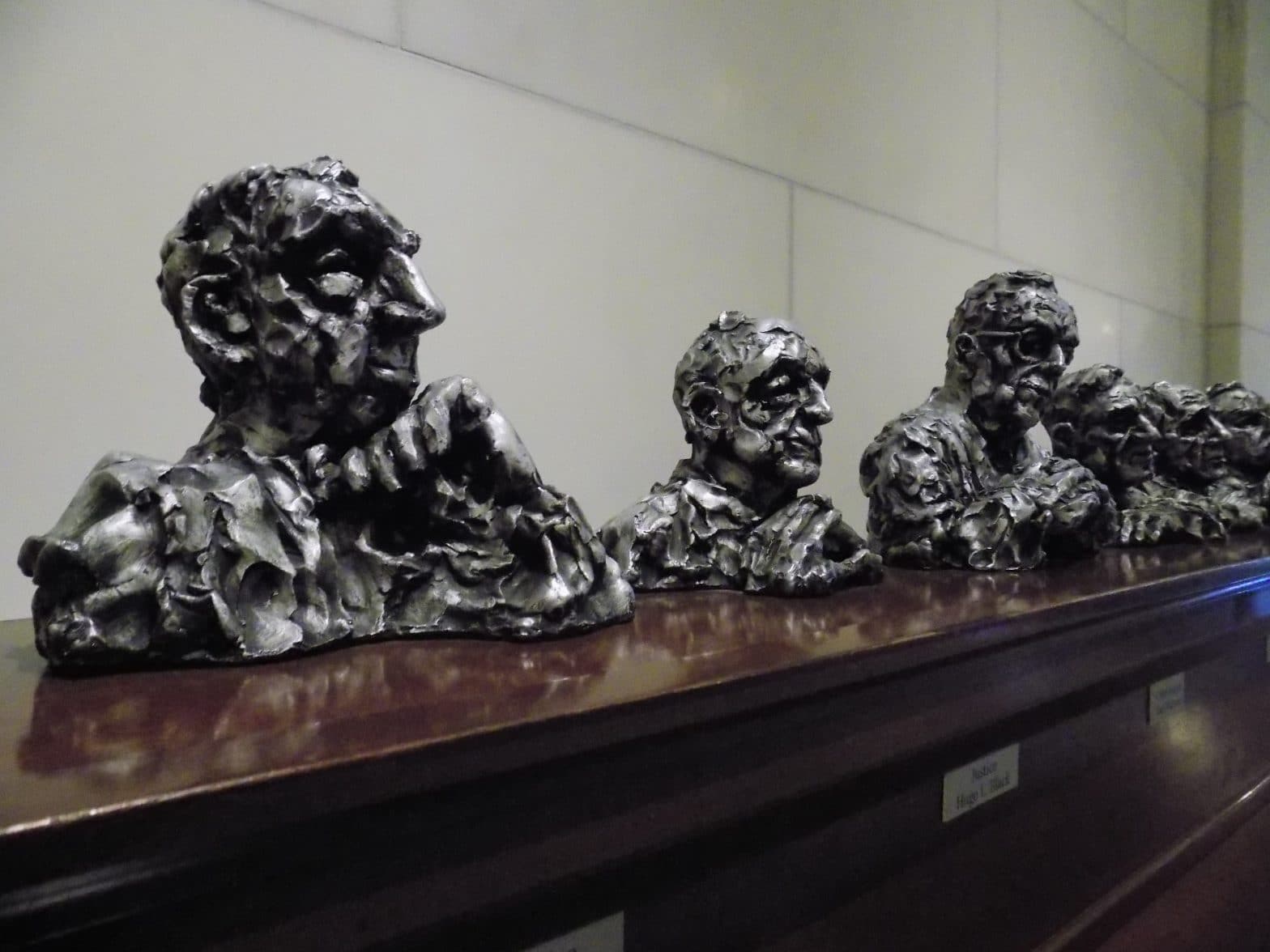Supreme Court Asked to Reject Tax Records Request

WASHINGTON – Attorneys for President Donald Trump on Tuesday asked the Supreme Court to toss congressional and state subpoenas seeking financial records from his bankers and accountants.
In the first of the related cases heard Tuesday, the justices were asked to decide the validity of subpoenas for Trump-related records issued by three House committees that oversee issues on federal ethics, banking, and foreign interference in U.S. elections.
During his opening argument, Trump lawyer Patrick Strawbridge maintained the House committees had no legitimate reason for seeking the records, and only wanted to hound a president they object to.
“The subpoenas at issue here are unprecedented in every sense,” Strawbridge said.
He went on to say the only legitimate need for the records would be to craft legislation. These requests were nothing of the kind, he said.
“These subpoenas are overreaching,” he said.
But Douglas Letter, the attorney for the U.S. House of Representatives, said the subpoenas to Trump’s bankers — Mazars USA LLP, Deutsche Bank AG and Capital One Financial Corp. — were related to important matters of public interest in which Congress should play a role.
What seemed to concern the justices most as they questioned both sides about their positions, were the long-term ramifications of any decision the court handed down.
A number of justices wondered why Trump should be able to shield his records from the House when Presidents Richard Nixon and Bill Clinton were unable to do the same when they faced scrutiny, respectively, during Watergate and the Whitewater investigation.
“You say this is one of a kind,” Justice Ruth Bader Ginsburg, “but in the Whitewater investigation Mr. Clinton’s personal records were subpoenaed from his accountant and Hillary Clinton’s billing records were subpoenaed from her former law firm.”
Strawbridge resisted this line of questioning, describing both Watergate and Whitewater as outliers.
“In the long view of history and precedent, what the House is demanding in regard to Trump is nothing less than an encroachment on the president’s constitutional prerogatives,” he said.
“Counsel, there is a long, long history of Congress seeking records and getting them … from presidents,” Justice Sonia Sotomayor responded.
Moving on, a number of justices suggested Trump would have greater grounds for withholding the documents if they emanated from his work in the White House, rather than just being personal financial records.
Jeffrey Wall, the deputy solicitor general representing the Justice Department, disagreed, saying Congress’s interest in official records should far outstrip their interest in the president’s personal matters.
This prompted a surprising question from Justice Brett Kavanaugh, a Trump appointee to the court, who noted the similarity between what the House committees are seeking and what Clinton was compelled to produce during the Whitewater investigation.
Wall admitted the subpoena in the Clinton case looked “very much” like those issued by the House, but said the difference is the former president didn’t challenge them.
Justices on both sides of the high court’s ideological divide asked Trump attorneys to spell out any potentially limiting principles that would prevent Congress from issuing subpoenas whenever it wishes.
“We’re concerned, as you’ve recognized, with the potential for harassment,” Chief Justice John Roberts said at one point.
Justice Neil Gorsuch said as it stands right now, Congress’s subpoena authority is “broad, maybe even limitless.”
Justice Elena Kagan mused that at the end of the day, Congress may need to demonstrate some heightened need for the information it is requesting — at least in certain circumstances.
The second case the justices heard involved much of the same underlying material, but raised separate legal issues — whether an investigation into alleged financial crimes committed by Trump needed to wait until he leaves office.
The case arises from an investigation by Manhattan District Attorney Cyrus Vance, who is seeking financial records related to, among other things, Trump Organization payments to women who claimed they had extramarital affairs with Trump, allegations he has repeatedly denied.
Attorney Jay Sekulow, arguing on the president’s behalf, said if a president’s records were not immune from subpoena while he remained in office, he could be subjected to relentless harassment as president.
“No county district attorney in our nation’s history has issued a criminal process against the sitting president of the United States, and for good reason: The Constitution does not allow it,” Sekulow said during his brief opening statement.
Carey Dunne, the lawyer representing Vance, said Sekulow’s assertion was unfounded, and that Vance was only doing his job.
Dunne noted the Trump Organization was based in Vance’s jurisdiction and went on to explain that multiple reports and legal proceedings had pointed to possible wrongdoing by the company.
“When a president acts as a private individual, he or she has responsibilities like every other citizen, including compliance with the legal process,” Dunne said. “In particular, this court has long held that American presidents are not above having to provide evidence in response to a law-enforcement inquiry.”
“The question then boils down to how can we both protect the House’s interest in obtaining information it needs to legislate but also protect the presidency” Justice Kavanaugh said. “How can the court balance those interests?”
A decision in the cases is expected by the end of June.






















